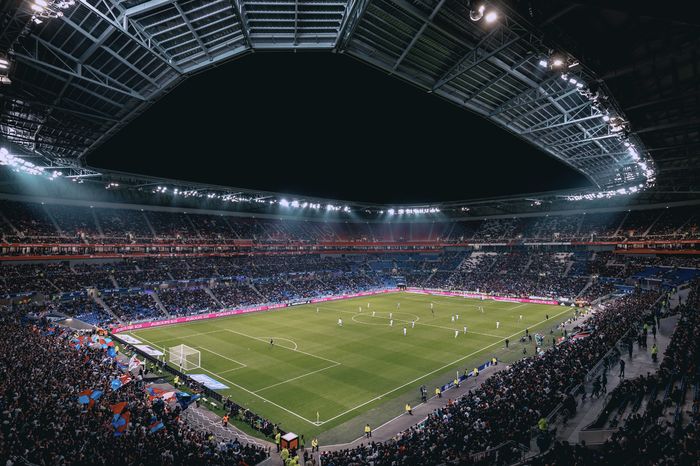Hillsborough: Football, class and the authorities
As the police finally apologise for their role in the Hillsborough disaster, Emily Lawson-Todd asks why it took so long?

If you follow the tram tracks in Hillsborough, near where I live in Sheffield, you’ll find yourself standing by a memorial. It’s small, blink-and-you’ll-miss-it against the towering backdrop of the Hillsborough stadium where Sheffield Wednesday regularly play (and lose), but it’s in perfect condition, well-kept and always covered in flowers. Sheffield still bears the scars of the tragedy all these years on, even though the primary victims of the disaster were from Liverpool and Merseyside. In some ways, it makes sense that we still carry this guilt. It happened on our turf and it was our police force that let it happen.
The recent news that the police have released an official apology to the 97 victims of the disaster and their families, promising “cultural change”, comes 34 years too late. For the past 34 years, countless communities, families and individuals have been embroiled in torment, consistently denied justice at the hands of several inquiries and prosecutions that went nowhere, while the perpetrators and instigators of the tragedy walked free aside from a mild slap on the wrist. In fact, the length of time that it has taken the police to apologise is almost double that of Steven Gerrard’s professional career, which was inspired by the death of his cousin in the disaster.
“It seems strange that only football fans seem to get flak over their actions”
While it could be fair enough to just stay here and express shock and anger at how offensively overdue this apology is, the question arises: why did it take so long to say sorry?
The tragedy that occurred on 15 April 1989 was overwhelmingly due to police negligence. From the officers’ lack of acquaintance with the grounds of Hillsborough stadium, to the poor marshalling of 24,256 Liverpool supporters dependent upon them for their safety, there was a failure to adhere to safety standards at every level. Gate C on Leppings Lane, the site of the disaster, was opened prematurely, causing a lethal bottleneck. Though the opening of the gate was revealed to be the decision of former South Yorkshire police chief superintendent David Duckenfield, this was only admitted in 2015 during a trial concerning the events. Previously, Duckenfield had instead adopted the lie that the gates were forced open by rowdy and intoxicated fans. In reality, the bins outside the stadium were not so much filled with cans of beer as they were with Vimto and Coke.
“In life and in death they were denied dignity and let down by the very systems meant to keep them safe”
The fact that Duckenfield’s lie was allowed to flourish largely unchallenged, casting the blame for a tragedy as unspeakably horrific as Hillsborough onto the victims and their families, exposes an uneasy relationship between class, sport, and the authorities. The police were all too ready to fall on old tropes of “football hooliganism” in order to protect their necks and wash their hands of blood because they knew that it would work, that the public would be ready to accept that the fans were simply mindlessly violent and unruly. While the term “hooligan” gets volleyed at most sports fans, it seems to find itself most commonly attached to sports that draw in more working-class fans such as football.
While I am not trying to diminish the fact that football fans can behave violently or disrespectfully, it seems strange that only football fans seem to get flak over their actions. Nobody ever talks about the “hooligan” actions at the races, despite them being boozy, often raucous events. The same goes for rugby union. As a Cambridge student, I have been an unfortunate witness to drinking-soc-tie-wearing, rugby-union-playing private school lads’ actions in my college bar which have been on par with, if not worse, than the aftermath of any Sheffield Wednesday loss. Unfortunately, it appears that unruly behaviour in spectator sports is yet another example of “one rule for us, another for them” that ultimately allows for the blame to be shifted away from the authorities onto the people they have a duty to protect.
The fact remains that this was an avoidable tragedy that should never have happened. The fans killed that day were not just a faceless mob, a homogenous entity, or even the fictional stock image of the football “hooligan”. They were brothers, sisters, parents, children, friends and co-workers. Yet, more importantly, they were people who deserved more than they got. In life and in death they were denied dignity and let down by the very systems meant to keep them safe.
 News / Cambridge academics sign open letter criticising research funding changes22 February 2026
News / Cambridge academics sign open letter criticising research funding changes22 February 2026 News / Student and union protesters hold ‘Trans Liberation Solidarity Rally’ 24 February 2026
News / Student and union protesters hold ‘Trans Liberation Solidarity Rally’ 24 February 2026 News / Union speakers condemn ‘hateful’ Katie Hopkins speech14 February 2026
News / Union speakers condemn ‘hateful’ Katie Hopkins speech14 February 2026 Features / Beyond the porters’ lodge: is life better outside college?24 February 2026
Features / Beyond the porters’ lodge: is life better outside college?24 February 2026 Theatre / Footlights Spring Revue? Don’t Mind if I Do!25 February 2026
Theatre / Footlights Spring Revue? Don’t Mind if I Do!25 February 2026








